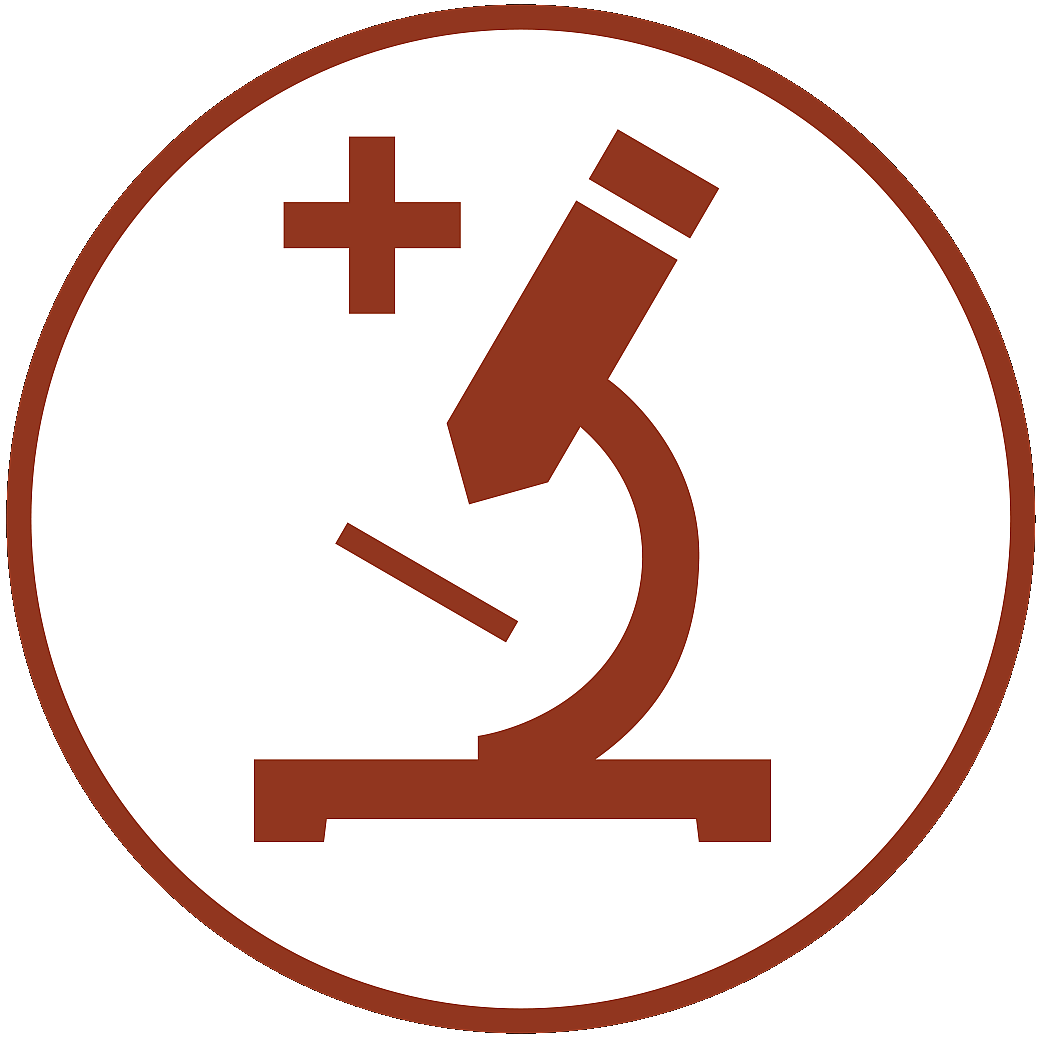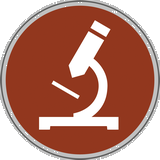Änderungen von Dokument Paget, Morbus (extramammär)
Zuletzt geändert von Thomas Brinkmeier am 2025/04/25 21:38
<
>
bearbeitet von Thomas Brinkmeier
am 2020/12/30 20:01
am 2020/12/30 20:01
bearbeitet von Thomas Brinkmeier
am 2019/03/24 11:38
am 2019/03/24 11:38
Änderungskommentar:
Es gibt keinen Kommentar für diese Version
Zusammenfassung
Details
- Histo, extramammärer Morbus Paget, CK7-Färbung, Abb. 6.jpg
-
- Größe
-
... ... @@ -1,1 +1,1 @@ 1 - 826.3KB1 +3.5 MB - Inhalt
- Varia, extramammärer Morbus Paget, Radiatio, Ann Dermatol, 2016.pdf
-
- Größe
-
... ... @@ -1,1 +1,1 @@ 1 - 1.2 MB1 +6.2 MB - Inhalt
- Wikiderm.EntryClass[0]
-
- Eintrag
-
... ... @@ -1,13 +1,10 @@ 1 1 (% class="Eintrag-1" %) 2 - (% lang="SV" %)Paget, Morbus (extramammär)2 +Paget, Morbus (extramammär) 3 3 4 4 (% class="Eintrag-2" %) 5 5 (% class="Feature" %)Def:(%%) Morbus Paget außerhalb der Mamillenregion 6 6 7 7 (% class="Eintrag-2" %) 8 -(% class="Feature" %)Engl:(% lang="EN-US" %) extramammary paget disease (EMPD) 9 - 10 -(% class="Eintrag-2" %) 11 11 (% class="Feature" %)Histr:(%%) Erstbeschreibung durch Barth James Paget (1814-1899), Chirurg in London, im Jahre 1874 12 12 13 13 (% class="Eintrag-2" %) ... ... @@ -14,283 +14,262 @@ 14 14 (% class="Feature" %)Pg:(%%) intraepidermale Mikrometastasierung eines Adenokarzinoms (apokriner Drüsen, meist kolorektal oder urothelial); sog. Toker-Zellen werden als Ursprungszelle angenommen 15 15 16 16 (% class="Eintrag-2" %) 17 -(% class="Feature" %) Etlg:(%%) (% class="Aufzhlungszeichen-1" %)-(%%)primärerEMPD14 +(% class="Feature" %)Lok:(%%) (% class="Bullet" %)-(%%) Genitalregion / Vulva bei Frauen {{zoombox Bilder="Klinik, extramammärer Morbus Paget, Mons pubis.jpg;ALM, extramammärer Morbus Paget, Mons pubis.jpg" Autoren="Thomas Brinkmeier;Thomas Brinkmeier" Institute="Hautärzte am Markt;Hautärzte am Markt" Orte="Dortmund;Dortmund" Kommentare=";" /}} 18 18 19 -(% class="Ebene- 1" %)20 -(% class=" Aufzhlungszeichen-1" %)-(%%) sekundärerEMPD16 +(% class="Ebene-2" %) 17 +(% class="Feature" %)Lit:(%%) Case Rep Dermatol Med. 2015;2015:162483. {{pdfbox Datei="Varia, extramammmärer Morbus Paget der Vulva, Article ID 162483.pdf" /}} 21 21 22 -(% class="Eintrag-2" %) 23 -(% class="Feature" %)Lok:(%%) (% class="Aufzhlungszeichen-1" %)-(%%) Genitalregion / Vulva bei Frauen (% class="Bilder" %)Klinik, extramammärer Morbus Paget, Mons pubis; (% class="Abbreviation" %)ALM(%%), extramammärer Morbus Paget, Mons pubis 24 - 25 -(% class="Ebene-1a" %) 26 -(% class="Feature" %)Lit:(% lang="EN-US" %) Case Rep Dermatol Med. 2015;2015:162483.(%%) (% class="PDF" lang="EN-US" %)Varia, extramammmärer Morbus Paget der Vulva, Article ID 162483 27 - 28 28 (% class="Ebene-1" %) 29 -(% class=" Aufzhlungszeichen-1" %)-(%%) seltener: periumbilikal, inguinal20 +(% class="Bullet" %)-(%%) seltener: periumbilikal, inguinal 30 30 31 31 (% class="Ebene-1" %) 32 -(% class=" Aufzhlungszeichen-1" %)-(%%) perianal bei Männern23 +(% class="Bullet" %)-(%%) perianal bei Männern 33 33 34 -(% class="Ebene- 1a" %)25 +(% class="Ebene-2" %) 35 35 (% class="Feature" %)Bed:(%%) bes. hohes Risiko für internen Tumor 36 36 37 37 (% class="Eintrag-2" %) 38 -(% class="Feature" %)Vork:(%%) (% class=" Aufzhlungszeichen-1" %)-(%%) in Europa meist ältere Frauen weißer Hautfarbe29 +(% class="Feature" %)Vork:(%%) (% class="Bullet" %)-(%%) in Europa meist ältere Frauen weißer Hautfarbe 39 39 40 40 (% class="Ebene-1" %) 41 -(% class=" Aufzhlungszeichen-1" %)-(%%) in Japan meist Männer32 +(% class="Bullet" %)-(%%) in Japan meist Männer 42 42 43 43 (% class="Eintrag-2" %) 44 44 (% class="Feature" %)HV:(%%) erythematöse, scharf begrenzte, fokal erosive Plaques mit unregelmäßiger Schuppung 45 45 46 46 (% class="Eintrag-2" %) 47 -(% class="Feature" %)So:(%%) akantholytischer anaplastischer extramammärer Morbus Paget38 +(% class="Feature" %)So:(%%) pigmentierter Morbus Paget {{pdfbox Datei="Varia, pigmentierter Morbus Paget, Ann Dermatol, 2011.pdf" /}} 48 48 49 -(% class="Ebene- 1a" %)50 -(% class="Feature" %) Lit:(%lang="IT"%)Cutis. 2019 Sep;104(3):E26-E2940 +(% class="Ebene-2" %) 41 +(% class="Feature" %)Vork:(%%) selten 51 51 52 52 (% class="Eintrag-2" %) 53 -(% class="Feature" %)Di:(% lang="IT"%) (% class="Aufzhlungszeichen-1" %)-(%%) Histologie44 +(% class="Feature" %)Di:(%%) (% class="Bullet" %)-(%%) Histologie 54 54 55 -(% class="Ebene-1a" %) 56 -(% class="Feature" %)Note:(%%) Es ist nicht möglich, EMPD und Morbus Bowen nur durch eine routinemäßige histologische Untersuchung zu unterscheiden, da bei beiden Entitäten Klarzellen beobachtet werden können. 57 - 58 58 (% class="Ebene-1" %) 59 -(% class=" Aufzhlungszeichen-1" %)-(%%) Sonographie des Abdomens und der peripheren Lymphknotenstationen47 +(% class="Bullet" %)-(%%) Sonographie des Abdomens und der peripheren Lymphknotenstationen 60 60 61 61 (% class="Ebene-1" %) 62 -(% class=" Aufzhlungszeichen-1" %)-(%%) Sentinel-Lymphknotenbiopsie ((% class="Abbreviation" %)SLND(%%))50 +(% class="Bullet" %)-(%%) Sentinel-Lymphknotenbiopsie ((% class="Abbreviation" %)SLND(%%)) 63 63 64 64 (% class="Ebene-1" %) 65 -(% class=" Aufzhlungszeichen-1" %)-(%%) Ganzkörper-PET53 +(% class="Bullet" %)-(%%) Ganzkörper-PET 66 66 67 -(% class="Ebene- 1a" %)55 +(% class="Ebene-2" %) 68 68 (% class="Feature" %)Lit:(%%) J Dermatol. 2017 Mar 11. [[http:~~/~~/doi.org/10.1111/1346-8138.13833>>url:http://doi.org/10.1111/1346-8138.13833]] 69 69 70 -(% class="Ebene- 2a" %)58 +(% class="Ebene-3" %) 71 71 (% class="Feature" %)Ind:(%%) Detektion von LK-Filiae 72 72 73 73 (% class="Eintrag-2" %) 74 -(% class="Feature" %)DD:(%%) (% class=" Aufzhlungszeichen-1" %)-(%%) histologisch: pagetoider Morbus Bowen62 +(% class="Feature" %)DD:(%%) (% class="Bullet" %)-(%%) histologisch: pagetoider Morbus Bowen 75 75 76 76 (% class="Ebene-1" %) 77 -(% class=" Aufzhlungszeichen-1" %)-(%%) pagetoides malignes Melanom in situ65 +(% class="Bullet" %)-(%%) pagetoides malignes Melanom in situ 78 78 79 79 (% class="Ebene-1" %) 80 -(% class=" Aufzhlungszeichen-1" %)-(%%) pagetoides Plattenepithelkarzinom in situ68 +(% class="Bullet" %)-(%%) pagetoides Plattenepithelkarzinom in situ 81 81 82 -(% class="Ebene- 1a" %)70 +(% class="Ebene-2" %) 83 83 (% class="Feature" %)IHC:(%%) positiv für p63 (i. G. zum extramammären Morbus Paget) 84 84 85 85 (% class="Ebene-1" %) 86 -(% class=" Aufzhlungszeichen-1" %)-(%%) klinisch: Lichen simplex chronicus, Ekzem, erosiver Lichen ruber planus, Soor, Psoriasis74 +(% class="Bullet" %)-(%%) klinisch: Lichen simplex chronicus, Ekzem, erosiver Lichen ruber planus, Soor, Psoriasis 87 87 88 88 (% class="Eintrag-2" %) 89 -(% class="Feature" %)Lab:(%%) (% class=" Aufzhlungszeichen-1" %)-(%%) RCAS1 (receptor-binding cancer antigen expression)77 +(% class="Feature" %)Lab:(%%) (% class="Bullet" %)-(%%) RCAS1 (receptor-binding cancer antigen expression) 90 90 91 -(% class="Ebene- 1a" %)79 +(% class="Ebene-2" %) 92 92 (% class="Feature" %)Def:(%%) Tumormarker 93 93 94 -(% class="Ebene- 1a" %)82 +(% class="Ebene-2" %) 95 95 (% class="Feature" %)Meth:(%%) Bestimmung im Serum 96 96 97 -(% class="Ebene- 1a" %)85 +(% class="Ebene-2" %) 98 98 (% class="Feature" %)Bed:(%%) Monitoring des Therapieerfolgs 99 99 100 -(% class="Ebene- 1a" %)88 +(% class="Ebene-2" %) 101 101 (% class="Feature" %)Lit:(%%) Clin Exp Dermatol 2003; 28: 211-3 102 102 103 103 (% class="Ebene-1" %) 104 -(% class=" Aufzhlungszeichen-1" %)-(%%) CEA (carcinoembryonic antigen) und CYFRA 21-1 (cytokeratin 19 fragment 21-1)92 +(% class="Bullet" %)-(%%) CEA (carcinoembryonic antigen) und CYFRA 21-1 (cytokeratin 19 fragment 21-1) 105 105 106 -(% class="Ebene- 1a" %)94 +(% class="Ebene-2" %) 107 107 (% class="Feature" %)Def:(%%) Tumormarker 108 108 109 -(% class="Ebene- 1a" %)97 +(% class="Ebene-2" %) 110 110 (% class="Feature" %)Meth:(%%) Bestimmung im Serum 111 111 112 -(% class="Ebene- 1a" %)100 +(% class="Ebene-2" %) 113 113 (% class="Feature" %)Lit:(%%) Br J Dermatol. 2019 Feb 21. [[http:~~/~~/doi.org/10.1111/bjd.17789>>url:http://doi.org/10.1111/bjd.17789]] 114 114 115 -(% class="Ebene- 2a" %)103 +(% class="Ebene-3" %) 116 116 (% class="Feature" %)Bed:(%%) Prädiktiv für Metastasen und Monitoring des Therapieerfolgs 117 117 118 118 (% class="Eintrag-2" %) 119 -(% class="Feature" %)Hi:(%%) intraepidermale, große, helle Zellen mit pleomorphen Kernen, teils nestartig aggregiert (an Schweizer Käse erinnernd) (%class="Bilder"%)Histo, extramammärer Morbus Paget, Abb. 1;107 +(% class="Feature" %)Hi:(%%) intraepidermale, große, helle Zellen mit pleomorphen Kernen, teils nestartig aggregiert (an Schweizer Käse erinnernd) {{zoombox Bilder="Histo, extramammärer Morbus Paget, Abb. 1.jpg;Histo, extramammärer Morbus Paget, Abb. 2.jpg;Histo, extramammärer Morbus Paget, Abb. 3.jpg;Histo, extramammärer Morbus Paget, Abb. 4.jpg;Histo, extramammärer Morbus Paget, Abb. 5.jpg;Histo, extramammärer Morbus Paget, CK7-Färbung, Abb. 6.jpg" Autoren="Peter Pelzer, Andrea von Stemm, Martin Winzer;Peter Pelzer, Andrea von Stemm, Martin Winzer;Peter Pelzer, Andrea von Stemm, Martin Winzer;Peter Pelzer, Andrea von Stemm, Martin Winzer;Peter Pelzer, Andrea von Stemm, Martin Winzer;Peter Pelzer, Andrea von Stemm, Martin Winzer" Institute="Dermatohistopathologie Partnerschaft;Dermatohistopathologie Partnerschaft;Dermatohistopathologie Partnerschaft;Dermatohistopathologie Partnerschaft;Dermatohistopathologie Partnerschaft;Dermatohistopathologie Partnerschaft" Orte="Westerstede;Westerstede;Westerstede;Westerstede;Westerstede;Westerstede" Kommentare=";;;;;" /}} 120 120 121 121 (% class="Eintrag-2" %) 122 122 (% class="Feature" %)IHC:(%%) Auswahl: 123 123 124 124 (% class="Ebene-1" %) 125 -(% class=" Aufzhlungszeichen-1" %)-(%%) niedermolekulare Zytokeratine113 +(% class="Bullet" %)-(%%) niedermolekulare Zytokeratine 126 126 127 -(% class="Ebene-1a" %) 128 -(% class="Feature" %)Note:(%%) Die CK20-Färbung ist bei sekundärem EMPD positiv und bei primärem EMPD negativ. 129 - 130 130 (% class="Ebene-1" %) 131 -(% class=" Aufzhlungszeichen-1"lang="EN-US"%)-(%lang="EN-US"%) RCAS1 (receptor-binding cancer antigen expression)116 +(% class="Bullet" %)-(%%) RCAS1 (receptor-binding cancer antigen expression) 132 132 133 -(% class="Ebene- 1a" %)134 -(% class="Feature" %)Vork:(% lang="EN-US"%) > 90%118 +(% class="Ebene-2" %) 119 +(% class="Feature" %)Vork:(%%) > 90% 135 135 136 -(% class="Ebene- 1a" %)121 +(% class="Ebene-2" %) 137 137 (% class="Feature" %)Wirk:(%%) Der Oberflächenmarker induziert Apoptose bei Zellen (insbes. bei immunkompetenten Zellen), die den RCAS1-Rezeptor exprimieren; darin besteht vermutlich ein Escape-Mechanismus der Tumorzelle vor der Immunabwehr. 138 138 139 139 (% class="Ebene-1" %) 140 -(% class=" Aufzhlungszeichen-1"lang="EN-GB"%)-(%lang="EN-GB"%) HER2 (epidermal growth factor receptor 2)125 +(% class="Bullet" %)-(%%) HER2 (epidermal growth factor receptor 2) 141 141 142 -(% class="Ebene- 1a" %)127 +(% class="Ebene-2" %) 143 143 (% class="Feature" %)Vork:(%%) ca. 15% 144 144 145 -(% class="Ebene- 1a" %)130 +(% class="Ebene-2" %) 146 146 (% class="Feature" %)Bed:(%%) Expression von HER2 soll mit aggressiverem Verlauf korrelieren 147 147 148 148 (% class="Ebene-1" %) 149 -(% class=" Aufzhlungszeichen-1" %)-(%%) TGF-beta3134 +(% class="Bullet" %)-(%%) TGF-beta3 150 150 151 151 (% class="Ebene-1" %) 152 -(% class=" Aufzhlungszeichen-1" %)-(%%) CAM 5.2137 +(% class="Bullet" %)-(%%) CAM 5.2 153 153 154 154 (% class="Ebene-1" %) 155 -(% class=" Aufzhlungszeichen-1" %)-(%%) Syndecan-1140 +(% class="Bullet" %)-(%%) Syndecan-1 156 156 157 -(% class="Ebene- 1a" %)158 -(% class="Feature" %) Bef:(%%) (% class="Aufzhlungszeichen-2" %)-(%%) zytoplasmatische Immunreaktivität beim extramammären Morbus Paget142 +(% class="Ebene-2" %) 143 +(% class="Feature" %)Erg:(%%) (% class="Bullet" %)-(%%) zytoplasmatische Immunreaktivität beim extramammären Morbus Paget 159 159 160 160 (% class="Ebene-2" %) 161 -(% class=" Aufzhlungszeichen-2" %)-(%%) zellmembrangebundene Immunreaktivität beim pagetoiden Morbus Bowen146 +(% class="Bullet" %)-(%%) zellmembrangebundene Immunreaktivität beim pagetoiden Morbus Bowen 162 162 163 163 (% class="Ebene-2" %) 164 -(% class=" Aufzhlungszeichen-2" %)-(%%) keine Immunreaktivität beim pagetoiden Melanoma in situ149 +(% class="Bullet" %)-(%%) keine Immunreaktivität beim pagetoiden Melanoma in situ 165 165 166 166 (% class="Ebene-1" %) 167 -(% class=" Aufzhlungszeichen-1"lang="SV"%)-(%lang="SV"%) Ki-67152 +(% class="Bullet" %)-(%%) Ki-67 168 168 169 -(% class="Ebene- 1a" %)170 -(% class="Feature" %)Lit:(% lang="SV"%) Dermatol Surg. 2012 Dec 26.(%%)[Epub ahead of print]154 +(% class="Ebene-2" %) 155 +(% class="Feature" %)Lit:(%%) Dermatol Surg. 2012 Dec 26. [Epub ahead of print] 171 171 172 -(% class="Ebene- 2a" %)157 +(% class="Ebene-3" %) 173 173 (% class="Feature" %)Co:(%%) PAS-Färbung zur histologischen Ausbreitungsdiagnostik 174 174 175 175 (% class="Ebene-1" %) 176 -(% class=" Aufzhlungszeichen-1"lang="EN-GB"%)-(%lang="EN-GB"%) p63 negativ161 +(% class="Bullet" %)-(%%) p63 negativ 177 177 178 -(% class="Ebene- 1a" %)179 -(% class="Feature" %)Lit:(% lang="EN-GB"%) Am J Dermatopathol. 2013 Jul 16. [Epub ahead of print]163 +(% class="Ebene-2" %) 164 +(% class="Feature" %)Lit:(%%) Am J Dermatopathol. 2013 Jul 16. [Epub ahead of print] 180 180 181 181 (% class="Eintrag-2" %) 182 -(% class="Feature" %)Th:(% lang="EN-GB"%) (% class="Aufzhlungszeichen-1" %)-(%%) physikalische Therapie167 +(% class="Feature" %)Th:(%%) (% class="Bullet" %)-(%%) physikalische Therapie 183 183 184 184 (% class="Ebene-2" %) 185 -(% class=" Aufzhlungszeichen-2"lang="EN-GB"%)-(%lang="EN-GB"%) Exzision(%%)(%class="PDF"lang="EN-GB" %)Varia, extramammärer Morbus Paget, OP, Ann Dermatol, 2013170 +(% class="Bullet" %)-(%%) Exzision {{pdfbox Datei="Varia, extramammärer Morbus Paget, OP, Ann Dermatol, 2013.pdf" /}} 186 186 187 -(% class="Ebene- 2a" %)188 -(% class="Feature" %)Bed:(% lang="EN-GB"%) (% class="Abbreviation" %)GS(%%), sofern ohne signifikante funktionellle Komplikationen praktikabel172 +(% class="Ebene-3" %) 173 +(% class="Feature" %)Bed:(%%) (% class="Abbreviation" %)GS(%%), sofern ohne signifikante funktionellle Komplikationen praktikabel 189 189 190 -(% class="Ebene- 2a" %)191 -(% class="Feature" %)Co:(% lang="EN-GB"%) Sentinel-Lymphknotendissektion175 +(% class="Ebene-3" %) 176 +(% class="Feature" %)Co:(%%) Sentinel-Lymphknotendissektion 192 192 193 -(% class="Ebene- 3a" %)194 -(% class="Feature" %)Lit:(% lang="EN-GB"%) Eur J Dermatol. 2015 Apr 1;25(2):156-61 (Japan), Eur J Dermatol. 2016 Jun 1;26(3):254-9 (Japan)178 +(% class="Ebene-4" %) 179 +(% class="Feature" %)Lit:(%%) Eur J Dermatol. 2015 Apr 1;25(2):156-61 (Japan), Eur J Dermatol. 2016 Jun 1;26(3):254-9 (Japan) 195 195 196 196 (% class="Ebene-2" %) 197 -(% class=" Aufzhlungszeichen-2"lang="EN-GB"%)-(%lang="EN-GB"%) CO2-Laserung182 +(% class="Bullet" %)-(%%) CO2-Laserung 198 198 199 199 (% class="Ebene-2" %) 200 -(% class=" Aufzhlungszeichen-2"lang="EN-GB"%)-(%lang="EN-GB"%) Radiatio(%%)(%class="PDF"lang="EN-GB" %)Varia, extramammärer Morbus Paget, Radiatio, Ann Dermatol, 2016185 +(% class="Bullet" %)-(%%) Radiatio {{pdfbox Datei="Varia, extramammärer Morbus Paget, Radiatio, Ann Dermatol, 2016.pdf" /}} 201 201 202 -(% class="Ebene- 2a" %)203 -(% class="Feature" %)Lit:(% lang="SV"%) (% class="Aufzhlungszeichen-2" %)-(%%) J Dermatolog Treat 2003; 14: 119-23; Clin Exp Dermatol 2003; 28: 360-3;(%%)(% lang="SV" %)Ann Dermatol. 2015 Feb;27(1):99-100187 +(% class="Ebene-3" %) 188 +(% class="Feature" %)Lit:(%%) (% class="Bullet" %)-(%%) J Dermatolog Treat 2003; 14: 119-23; Clin Exp Dermatol 2003; 28: 360-3; Ann Dermatol. 2015 Feb;27(1):99-100 204 204 205 205 (% class="Ebene-3" %) 206 -(% class=" Aufzhlungszeichen-2"lang="SV"%)-(%lang="SV"%) J Am Acad Dermatol. 2011 Jul;65(1):192-4191 +(% class="Bullet" %)-(%%) J Am Acad Dermatol. 2011 Jul;65(1):192-4 207 207 208 -(% class="Ebene- 3a" %)209 -(% class="Feature" %)Lok:(% lang="SV"%) Anogenitalregion193 +(% class="Ebene-4" %) 194 +(% class="Feature" %)Lok:(%%) Anogenitalregion 210 210 211 211 (% class="Ebene-2" %) 212 -(% class=" Aufzhlungszeichen-2"lang="SV"%)-(%lang="SV"%) photodynamische Therapie ((% class="Abbreviation" %)PDT(%%))197 +(% class="Bullet" %)-(%%) photodynamische Therapie ((% class="Abbreviation" %)PDT(%%)) 213 213 214 -(% class="Ebene- 2a" %)215 -(% class="Feature" %)Lit:(% lang="SV"%) Br J Dermatol 2002; 148: 1000-5;(%%)(% lang="SV" %)Dermatol Surg. 2013 Jan;39(1 Pt 1):144-5199 +(% class="Ebene-3" %) 200 +(% class="Feature" %)Lit:(%%) Br J Dermatol 2002; 148: 1000-5; Dermatol Surg. 2013 Jan;39(1 Pt 1):144-5 216 216 217 -(% class="Ebene- 2a" %)218 -(% class="Feature" %)PT:(% lang="SV"%) (% class="Abbreviation" %)CS(%%)202 +(% class="Ebene-3" %) 203 +(% class="Feature" %)PT:(%%) (% class="Abbreviation" %)CS(%%) 219 219 220 -(% class="Ebene- 2a" %)221 -(% class="Feature" %)Co:(% lang="SV"%) Tretinoin topisch205 +(% class="Ebene-3" %) 206 +(% class="Feature" %)Co:(%%) Tretinoin topisch 222 222 223 -(% class="Ebene- 3a" %)224 -(% class="Feature" %)Lit:(% lang="SV"%) Dermatol Ther. 2013 Mar;26(2):170-2.(%%)[[http:~~/~~/doi.org/10.1111/j.1529-8019.2013.01546.x>>url:http://doi.org/10.1111/j.1529-8019.2013.01546.x]]208 +(% class="Ebene-4" %) 209 +(% class="Feature" %)Lit:(%%) Dermatol Ther. 2013 Mar;26(2):170-2. [[http:~~/~~/doi.org/10.1111/j.1529-8019.2013.01546.x>>url:http://doi.org/10.1111/j.1529-8019.2013.01546.x]] 225 225 226 226 (% class="Ebene-1" %) 227 -(% class=" Aufzhlungszeichen-1" %)-(%%) medikamentöse Therapie212 +(% class="Bullet" %)-(%%) medikamentöse Therapie 228 228 229 229 (% class="Ebene-2" %) 230 -(% class=" Aufzhlungszeichen-2" %)-(%%) **[[Imiquimod]]**215 +(% class="Bullet" %)-(%%) **[[Imiquimod]]** 231 231 232 -(% class="Ebene- 2a" %)217 +(% class="Ebene-3" %) 233 233 (% class="Feature" %)Vor:(%%) Ausschluss assoziierter Malignome und invasiven Wachstums 234 234 235 -(% class="Ebene- 2a" %)220 +(% class="Ebene-3" %) 236 236 (% class="Feature" %)Appl:(%%) topisch über mehrere Monate 237 237 238 -(% class="Ebene- 2a" %)239 -(% class="Feature" %)Lit:(%%) (% class=" Aufzhlungszeichen-2" %)-(%%) J Am Acad Dermatol 2002; 47: S229-35223 +(% class="Ebene-3" %) 224 +(% class="Feature" %)Lit:(%%) (% class="Bullet" %)-(%%) J Am Acad Dermatol 2002; 47: S229-35 240 240 241 241 (% class="Ebene-3" %) 242 -(% class=" Aufzhlungszeichen-2" %)-(%%) Clin Exp Dermatol 2003; 28: S36-8227 +(% class="Bullet" %)-(%%) Clin Exp Dermatol 2003; 28: S36-8 243 243 244 -(% class="Ebene- 3a" %)229 +(% class="Ebene-4" %) 245 245 (% class="Feature" %)PT:(%%) (% class="Abbreviation" %)CR(%%) 246 246 247 247 (% class="Ebene-3" %) 248 -(% class=" Aufzhlungszeichen-2" %)-(%%) J Am Acad Dermatol. 2014 Apr;70(4):644-50 (Deutschland)233 +(% class="Bullet" %)-(%%) J Am Acad Dermatol. 2014 Apr;70(4):644-50 (Deutschland) 249 249 250 -(% class="Ebene- 3a" %)251 -(% class="Feature" %)PT:(% lang="DA"%) Multicenter-Studie235 +(% class="Ebene-4" %) 236 +(% class="Feature" %)PT:(%%) Multicenter-Studie 252 252 253 -(% class="Ebene- 3a" %)254 -(% class="Feature" %)Ind:(% lang="DA"%) extramammärer Morbus Paget der Vulva238 +(% class="Ebene-4" %) 239 +(% class="Feature" %)Ind:(%%) extramammärer Morbus Paget der Vulva 255 255 256 -(% class="Ebene- 2a" %)257 -(% class="Feature" %)Co:(% lang="EN-GB"%) Tazaroten241 +(% class="Ebene-3" %) 242 +(% class="Feature" %)Co:(%%) Tazaroten 258 258 259 -(% class="Ebene- 3a" %)260 -(% class="Feature" %)Lit:(% lang="EN-GB"%) Dermatol Ther. 2014 Jan-Feb;27(1):19-20 (Spanien)244 +(% class="Ebene-4" %) 245 +(% class="Feature" %)Lit:(%%) Dermatol Ther. 2014 Jan-Feb;27(1):19-20 (Spanien) 261 261 262 262 (% class="Ebene-2" %) 263 -(% class=" Aufzhlungszeichen-2"lang="EN-GB"%)-(%lang="EN-GB"%) 5-Fluorouracil (5-FU)248 +(% class="Bullet" %)-(%%) 5-Fluorouracil (5-FU) 264 264 265 -(% class="Ebene- 2a" %)266 -(% class="Feature" %)Appl:(% lang="EN-GB"%) topisch250 +(% class="Ebene-3" %) 251 +(% class="Feature" %)Appl:(%%) topisch 267 267 268 268 (% class="Ebene-2" %) 269 -(% class=" Aufzhlungszeichen-2"lang="EN-GB"%)-(%lang="EN-GB"%) Docetaxel254 +(% class="Bullet" %)-(%%) Docetaxel 270 270 271 -(% class="Ebene- 2a" %)272 -(% class="Feature" %)Bed:(% lang="EN-GB"%)first-line-Chemotherapeutikumbei metastasiertem Befund256 +(% class="Ebene-3" %) 257 +(% class="Feature" %)Bed:(%%) avanciert zum first-line-Chemotherapeutikum 273 273 274 -(% class="Ebene- 2a" %)275 -(% class="Feature" %)Lit:(% lang="EN-GB"%) J Dermatol. 2016 Jun;43(6):633-7259 +(% class="Ebene-3" %) 260 +(% class="Feature" %)Lit:(%%) J Dermatol. 2016 Jun;43(6):633-7 276 276 277 -(% class="Ebene- 3a" %)278 -(% class="Feature" %)PT:(% lang="EN-GB"%) (% class="Abbreviation" %)CS(%%)262 +(% class="Ebene-4" %) 263 +(% class="Feature" %)PT:(%%) (% class="Abbreviation" %)CS(%%) 279 279 280 -(% class="Ebene- 2a" %)265 +(% class="Ebene-3" %) 281 281 (% class="Feature" %)Phar:(%%) Taxotere^^®^^ 282 282 283 -(% class="Ebene- 2a" %)268 +(% class="Ebene-3" %) 284 284 (% class="Feature" %)Dos:(%%) 60 mg/qm alle 4 Wochen 285 285 286 -(% class="Ebene-3a" %) 287 -(% class="Feature" %)Altn:(%%) 25 mg/qm pro Woche 288 - 289 -(% class="Ebene-4a" %) 290 -(% class="Feature" %)Lit:(%%) J Dermatol. 2020 Feb 5. http:~/~/doi.org/10.1111/1346-8138.15255 291 - 292 -(% class="Ebene-5a" %) 293 -(% class="Feature" %)PT:(%%) (% class="Abbreviation" %)CS(%%) 294 - 295 295 (% class="Ebene-2" %) 296 -(% class=" Aufzhlungszeichen-2" %)-(%%) Polychemotherapie272 +(% class="Bullet" %)-(%%) Polychemotherapie
 Extramammärer Morbus Paget
Extramammärer Morbus Paget  extramammärer Morbus Paget, Mons pubis
extramammärer Morbus Paget, Mons pubis 
 extramammärer Morbus Paget, Mons pubis
extramammärer Morbus Paget, Mons pubis 






